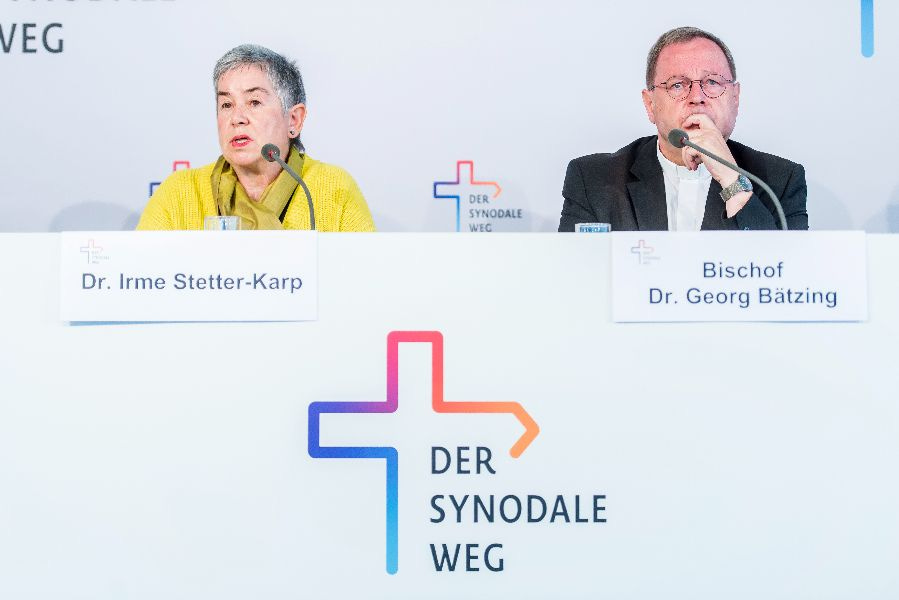German synodal way members back permanent ‘synodal council’
The new body will ‘take fundamental decisions of supra-diocesan significance’

A turbulent three-day meeting of the German “synodal way” ended on Saturday with the adoption of a controversial proposal to create a permanent body composed of lay people and bishops to oversee the local Church.
The synodal way is a multi-year gathering of bishops and lay people to discuss four main topics: power, the priesthood, women in the Church, an…
